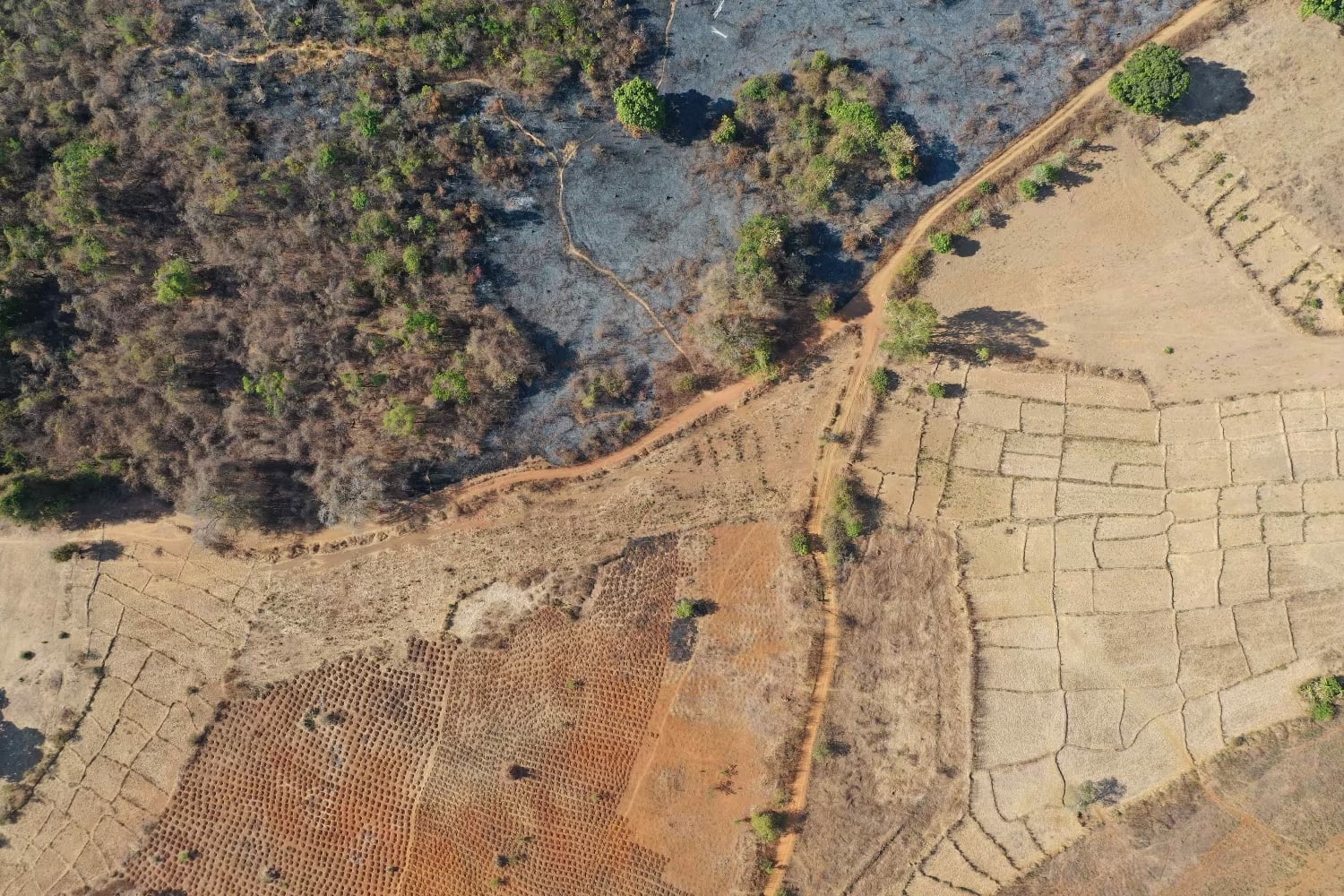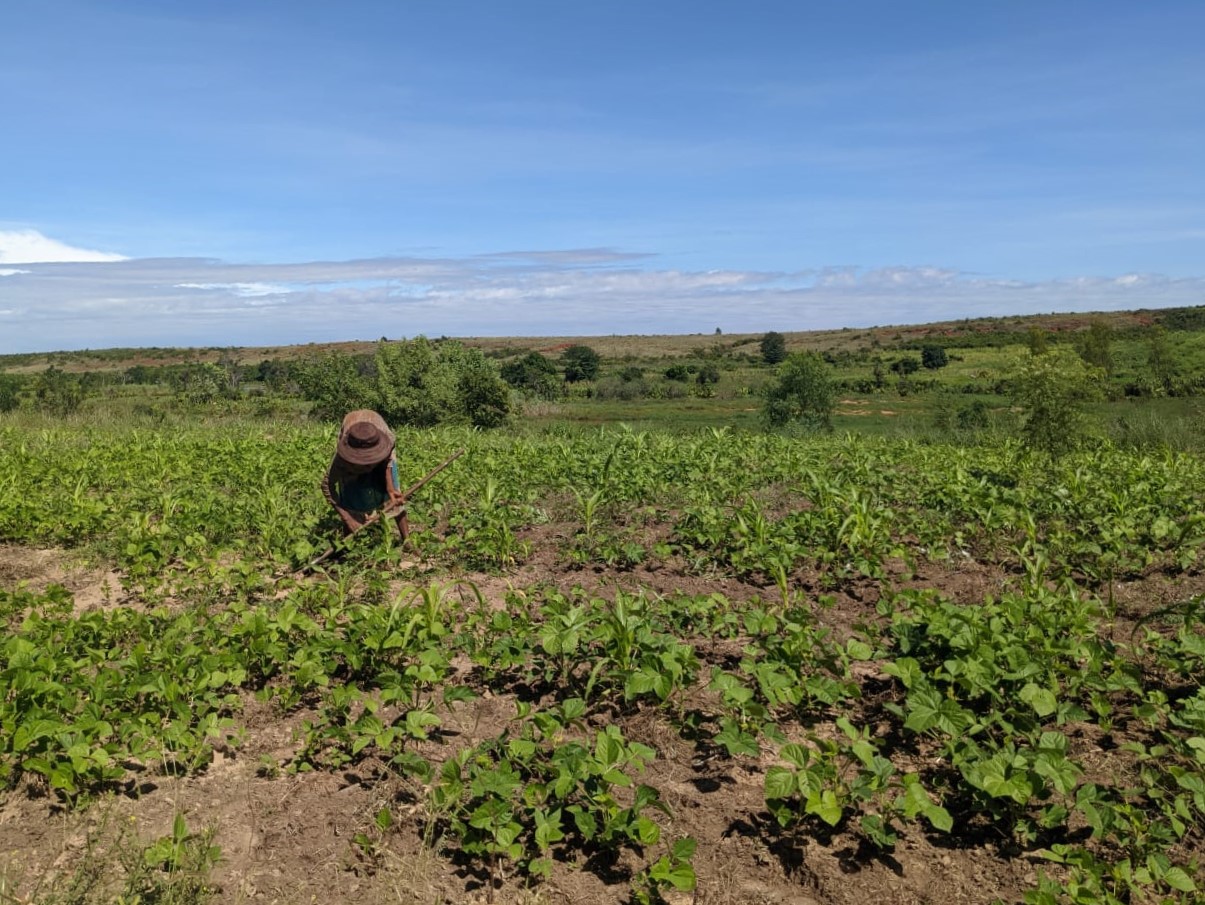Land Rights and Gender Responsive Climate Action Seminar
Towards Climate Justice: Securing Women’s Land Rights for a Resilient Tomorrow
by Moritz Hauer, Frederike Klümper | 2023-09-26

In September 2023, Nairobi hosted several important climate change events within one week, bringing a diverse range of stakeholders into town for regional collaboration on climate change. One of these events was the inaugural Africa Climate Summit (ACS), held from 4th to 6th September, organized by the African Union as well as the Republic of Kenya. The three-day Summit convened leaders from governments, international organizations, civil society, indigenous communities, businesses, and academia to discuss Africa's stance on global climate change plans. With a focus on climate action financing and green growth, the Summit aimed to shape common commitments, demands and actions, resulting in the unanimously adopted Nairobi Declaration. Contributing to the many discussions of the Summit, TMG organized a seminar in Nairobi addressing the crucial issue of land rights, emphasizing women’s land rights, to advocate for gender-responsive climate and environmental action.
The Summit took place alongside the wider Africa Climate Week (ACW), also hosted by the government of Kenya and organized by the United Nations Framework Convention on Climate Change (UNFCCC) together with global and regional partners. The ACW is one of four Regional Climate Weeks that aim to boost momentum ahead of the 28th Conference of the Parties of the UNFCCC (COP 28) in Dubai later this year, and to inform the upcoming first Global Stocktake with region-focused contributions. Last but not least, civil society organizations released the African People's Climate and Development Declaration and gathered for the Real Africa People’s Climate Summit March on Monday, September 4th. Through this, more than 500 civil society organizations emphasized concerns that the Summit agenda prioritized Western interests, such as carbon markets and carbon sequestration, while marketing them as African priorities. As such, they called for rejecting false solutions, promoting transparent dialogue among African citizens and policymakers and prioritizing genuine community-led solutions.
Land Rights and Gender Responsive Climate Action Seminar
“The Africa Climate Summit, Week, and the People’s March talk about big global issues. Here, we concentrate on something embedded in these big issues: land rights.” – Alexander Müller, Managing Director, TMG Research
One of the topics notably missing during the Summit’s discussions on climate action, carbon markets and green growth was that of land tenure rights and particularly women’s land rights. To address this, TMG’s seminar on Land Rights and Gender Responsive Climate Action brought together diverse perspectives from community voices to National Focal Points perspectives and representatives from the Rio Conventions’ Secretariats. The seminar built on the outcomes of the Strategy Workshop on Women's Land Rights and the Rio Conventions, and aimed to create a space for dialogue among stakeholders, nurturing wider alliances to address the multifaceted issues surrounding women's land rights. The seminar had a clear message: Effective climate action, biodiversity conservation, and land restoration demand prioritizing women's land rights.
Grassroots Women and Climate Change Impacts
“Climate change and gender inequality are not two separate challenges – we have to discuss them together.” – Lillian Achola, Executive Director, LANDnet Uganda
One of the most resonant themes brought forward during the seminar is the intricate connection between the women, especially grassroots women in agriculture, their land rights and the vulnerabilities resulting from climate change impacts. Emphasizing the multifaceted roles that grassroots women perform, such as caring for and nourishing their families and communities, participants illustrated the grave consequences of climate change related impacts on women and their communities. With agriculture being the primary source of sustenance and women providing the majority of labor input in African agriculture, climate change impacts directly affect the food security of women and their families as well as their role as primary caregivers in the community.
Given the central role of women in rural farming and managing the majority of productive resources, their ability to adapt to irregular rainfall patterns, floods, and other climate-related extreme weather is closely linked to having access to and control over land. As exemplified by Violet Shivutse from Shibuye Community Health Workers in Kenya, the formation of rural women’s groups and initiatives, such as community-led land leasing, has enabled rural women to gain access to land and has contributed to the realization of their land rights, especially for women who historically could not own or inherit land. The participants drew attention to the fact that grassroots women have local solutions to adapt to climate change and restore degraded land that need to be scaled up and supported through bottom-up approaches.
However, an ongoing challenge that was emphasized is the sustainability of grassroots women's initiatives, which can too easily falter due to a lack of consistent policy and institutional support. In this context, the UNCCD landmark Land Tenure Decision (Decision 26/COP.14) was highlighted as a critical instrument to also secure women’s land rights in climate actions. So far, UNCCD’s land tenure decisions are the only decisions that link the global gold standard on responsible land governance – the tenure guidelines adopted by the UN Committee on World Food Security – to a Rio Convention. Their potential for achieving just transitions was highlighted at the last UNCCD COP 15 in Abidjan. As part of the BMZ-funded Global Soil Week (GSW) project, TMG Research has initiated a project to document and monitor the implementation of UNCCD Decision 26/COP.14 on land tenure in Malawi, Kenya, Benin, and Madagascar. In addition, the Just Transitions Project, supported by the Robert Bosch Stiftung, builds on the work of the Global Soil Week project by strengthening the capacity of additional civil society organizations and building a network of qualified partners for land tenure mapping in several African countries (Benin, Togo, Niger, Malawi, Madagascar, Uganda, Tanzania, Kenya). The project further supports regional and international dialogues to strengthen the importance of women's land rights in the climate debate and in land restoration policies,
At a time when women’s land rights are under threat for a multitude of reasons, it requires coordination and alignment between the Rio Conventions to overcome the barriers that inhibit just transitions from materializing. Land, livelihoods, and gender equality are themes that cut across all three Rio Conventions, and it requires collaborative efforts and coherence to build on the strengths of each Convention to secure women’s land rights. The National Focal Points of the three Conventions play an important role in creating synergies as well as building and fostering collaboration. Collaboration can further be achieved through a continuous dialogue that involves diverse groups, including youth, civil society, and the private sector.
Concerns About Carbon Markets

Picture rights reserved to LlandDev
“I feel that there is a lack of understanding of how all the proposals around carbon markets are actually resting on land; and yet, nobody is talking about who’s land this is.” – Esther Mwaura-Muiru, Global Advocacy Director, Stand for Her Land
Several participants raised concerns about the Summit’s heavy focus on carbon markets as well as green growth, and how the global discourse appears to be skewed in favor of those countries heavily contributing to global warming. Some participants argued that the most polluting countries are relying on Africa as a platform to compensate their emissions through carbon credit schemes while providing the continent with inadequate compensation and insufficient financial contributions for climate change mitigation and adaptation.
Land rights are critically missing from the global discussions on voluntary carbon markets, reflecting a lack of involvement of the most affected communities in decision-making processes. Safeguards are needed to protect women's land rights in carbon market initiatives, supported through tools, such as the Haki Ardhi Rights Reporting Tool, developed by Kenya Land Alliance, TMG Research, and Rainforest Foundation UK. Recognizing community tenure rights and aligning them with responsible land governance is one way to reconcile climate action with the preservation of community livelihoods.
Social Norms and a ‘Whole-of-Society’ Approach
“As Gender Focal Points, we tend to focus strongly on women, but even as we talk about women’s land rights we should go beyond just ‘women’, considering intersectionality and which kind of women we are talking about.” – Jackline Makokha, UNFCCC National Gender and Climate Change Focal Point
“Restoration of degraded land means investing into that land and investment can only happen when there are clear rights in terms of who is going to benefit.” – Teddie Kamoto, UNCCD National Focal Point, Malawi
Several participants pointed out that the successful implementation of land rights policies further hinges on creating behavioral change and addressing the more deeply rooted social norms that uphold gender inequalities with regards to land ownership. For instance, while the Kenyan government has defined the land rights of women and girls as a priority issue, cultural systems and local traditions might hinder the operationalization of fair and equitable land policies. Overcoming social beliefs requires a deeper understanding of the cultural contexts that shape perceptions of land tenure, and calls for awareness raising, open dialogues and local alliances.
Malawi serves as a poignant example in this case. While legislative strides have been made to safeguard women's land rights, especially in the context of divorce or widowhood, it is typically the men who wield control over the sales of agricultural goods and may not always distribute the proceeds equitably within the family. Addressing this imbalance means that both women and men need to be active participants in reshaping social norms and roles.
To secure women’s land rights, a ‘whole-of-society’ approach was recommended that focuses on changing social norms, enabling community-led decision-making on land use, and driving investments in land restoration and local climate action. In this approach, governments, citizens, and cultural leaders collaboratively address land tenure issues, ensuring no discrimination.
Moving Beyond the Africa Climate Summit and Towards COP28
“We talk a lot about technology in the context of climate change and not so much about the actions that need to be taken as humans and the connections that we need to be making. Gender equality and the empowerment of women and girls should be seen as such low-hanging fruit for countries and societies to be able to raise ambition on climate policy and action. It is not simple, but it is the foundation for more effective climate action, biodiversity action, and land restoration.” – Fleur Newman, Unit Lead Gender, Youth, ACE, UNFCCC
Many attendees felt that the Summit did not sufficiently address marginalized communities' concerns and voices, expressing a heartfelt wish to see rural women included in these dialogues. As the global community approaches COP 28, participants emphasized that Global South nations must champion land rights in climate action. Land tenure security can drive local innovations for climate change adaptation and create an enabling environment for those innovations to flourish and sustain. The participants called for an authentic African-led vision, one that taps into the continent's vast potential for renewable energy resources, land restoration, and biodiversity conservation while safeguarding secure land tenure rights. Gender equality and women's empowerment stand pivotal for this vision, as they are foundational to effective environmental and climate action.
Central to this discussion is the urgent call for greater inclusivity. It is imperative to advocate for policies that not only reflect the lived experiences of grassroots women but also bring their perspectives to the forefront of policy dialogues. To ensure that their voices are not just heard but actively involved, there is a need to create incentives that encourage the involvement of grassroots women in the development of climate action plans. The way forward demands coherence and conscious efforts to ensure inclusivity.
In summary, land rights are not just a piece of the puzzle; they are a foundation to achieve just transitions. This also implies joining forces and building coalitions. Climate action requires a rights-based, just, and equitable approach with robust environmental and social safeguards, necessitating an unwavering commitment to mainstream the perspectives of communities and the most vulnerable to create a sustainable future for all. Continuing this critical conversation, TMG Research recently held a panel discussion titled Safeguards for Carbon Markets – Prioritizing Local Communities’ Tenure Rights at the 2023 Global Landscapes Forum in Nairobi. This session brought together different perspectives on carbon credit schemes and emphasized the importance of protecting the tenure rights of local communities as the global demand for voluntary carbon credits continues to grow. The session’s recording and white paper provide a more detailed look into this complex topic.
“None of the big decisions and expectations can be achieved if we do not secure land rights, and especially women’s land rights.” – Alexander Müller, Managing Director, TMG Research
 Urban Food FuturesFeb 09, 2026
Urban Food FuturesFeb 09, 2026Pushing the horizon: Urban farming and community-led innovation in Mukuru informal settlement
A small community-run greenhouse in Mukuru is offering insights into how controlled-environment agriculture can strengthen food security in urban environments under increasing pressure—and a look into the future of food systems in informal settlements.
Christian Sonntag, Emmanuel Atamba, Lumi Youm
 Land GovernanceDec 18, 2025
Land GovernanceDec 18, 2025Land tenure, women’s land rights, and resilience: Reflections from CRIC23 toward UNCCD COP17
Our experts discuss what the exchanges at CRIC23 highlighted and revealed about the role of secure and gender-equitable land tenure in the UNCCD's work ahead of the 2026 triple COP year.
Frederike Klümper, Washe Kazungu
 Urban Food FuturesDec 09, 2025
Urban Food FuturesDec 09, 2025The story of Mukuru's Urban Nutrition Hub
In Mukuru informal settlement, a safe haven for women has grown into the Urban Nutrition Hub, a multi-purpose space for nutrition education, training, and community development, demonstrating the potential of grassroots community-owned innovation..
Serah Kiragu-Wissler


